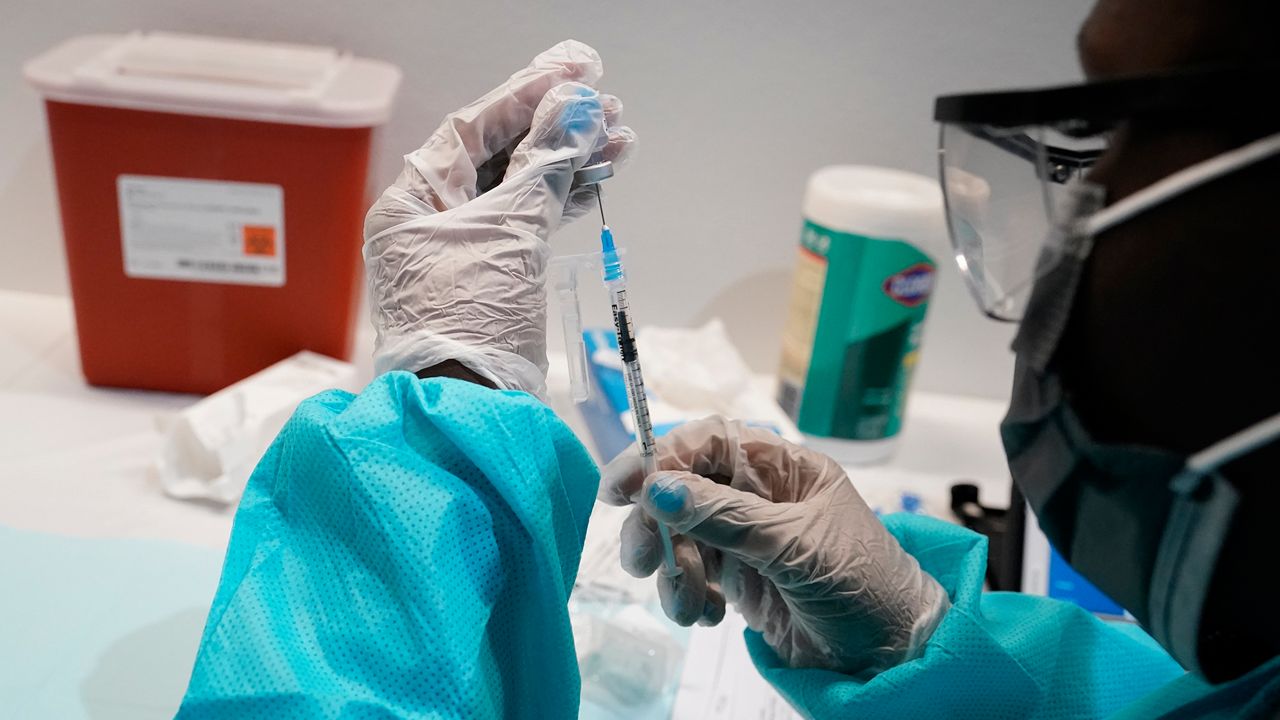Texas lawmakers debate private vaccine mandate ban
[ad_1]
AUSTIN, Texas – Governor Greg Abbott takes over the Biden administration through vaccine mandates and hopes the legislature will follow suit.
What you need to know
- The law doesn’t prohibit private companies from having COVID-19 vaccine mandates, but it does require them to have exemptions for medical reasons, natural immunity to COVID-19 and its recovery, or for reasons of personal conscience
- The National Federation of Independent Business also rejects the bill because it exposes companies to the risk of expensive legal disputes
- The lawmakers who support this law don’t have much time to get it across the finish line. There is only one week left in this special session
Legislators heard testimony on Wednesday about a bill designed to prevent Abbott’s executive order from private companies from transposing these mandates into state law.
The bill does not prohibit private companies from having COVID-19 vaccine mandates, but it does require exemptions for medical reasons, natural immunity to COVID-19 or its recovery, or for reasons of personal conscience, including religious beliefs.
While proponents of the bill say it protects individual choice, opponents say it violates the rights of private companies.
Rep. Tom Oliverson, R-Texas House District 130, who drafted the bill, presented it to the House Committee on State Affairs and said, “One of the things that, as a doctor, I believe very much, and I think it’s a Cornerstone and a cornerstone of the way we practice medicine in this country – it is fundamental to medical ethics – is the idea of patient autonomy. ”
Rafael Pardeiro came to the Texas Capitol on Wednesday to testify for the law.
“Not many people are pushing to move to Odell, Texas,” said Pardeiro.
He is a physical therapist who works in smaller hospitals and nursing homes in rural Texas and fears they will lose too many staff if they impose COVID-19 vaccine requirements.
“I spoke to a nursing home owner who is afraid they will lose 40% of their staff and the staff is already thin because they have a pool of 500 people who live in a small town. And what will they do when a mandate forces them to get rid of almost half of their staff, “said Pardeiro.
He shared his concerns Wednesday with the House State Affairs Committee, which heard statements about a bill that would prohibit private companies from enforcing a COVID-19 vaccine requirement for employees or customers.
“Americans generally don’t like being told what to do, especially if they believe it violates or interferes with their specific rights as an individual,” Oliverson said.
The bill has been harshly criticized by those who say it violates the rights of private companies.
“I am very concerned about what this will mean for small business freedom,” said Rep. Eddie Lucio III, R-Texas House District 38. “We don’t have to remove anything from your toolbox to give you a chance to run your business successfully.” to be and survive this very difficult time. “
The National Federation of Independent Business also rejects the bill because it exposes companies to the risk of expensive lawsuits.
“It gives employers very extensive liability, not just punitive damages such as fines, but could go even further,” said Annie Spilman, Texas director of the National Federation of Independent Business.
The Texas Hospital Association says that while not all hospitals in the state have vaccine mandates, this bill will take the option to larger hospitals that depend on them.
“We are committed to creating an environment where hospitals are unable to keep their staff healthy and then provide healthy protection for our patients,” said Carrie Kroll, vice president of advocacy for the Texas Hospital Association.
The lawmakers who support this law don’t have much time to get it across the finish line. There is only one week left in this special session and lawmakers are still working to complete the reassignment process before that deadline.
Regardless of what happens in the legislature, many legal scholars say that a state order replaces a state order and that the matter will ultimately be decided by the courts.
[ad_2]

